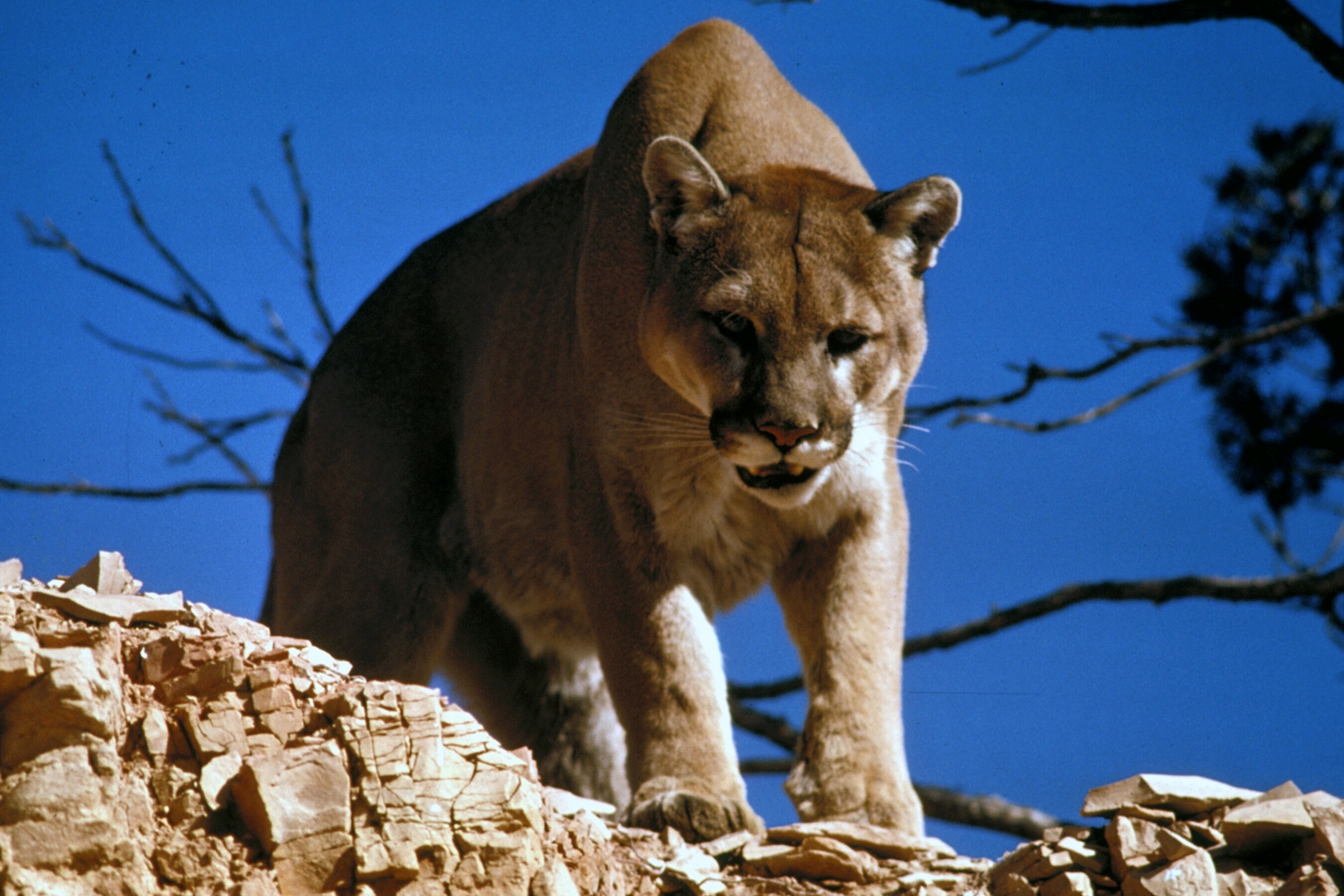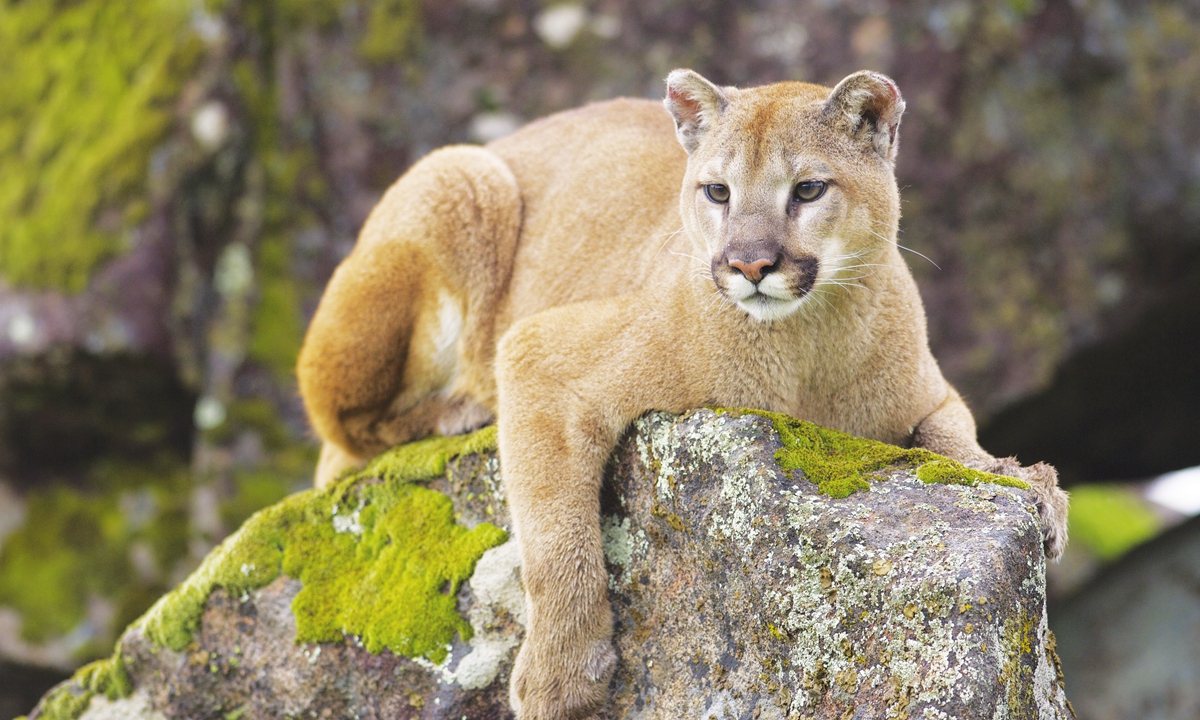How To Survive A Cougar - Answers That Would Definitely Help You
If you are asking how to survive a cougar if an attack happens, well you came to the right place. Mountain lions, also known as cougars, pumas, or panthers, are among the most terrifying animals to encounter during your wildlife travel. Cougars can weigh more than 200 pounds and stalk their prey. They also have the same cunning and agility as a typical house cat, which is a dangerous combination.
Author:Liam JonesReviewer:Maya ReyesJul 13, 20226.7K Shares566.2K Views

Mountain lions, also known as cougars, pumas, or panthers, are among the most terrifying animals to encounter during your wildlife travel.
Cougars can weigh more than 200 pounds and stalk their prey. They also have the same cunning and agility as a typical house cat, which is a dangerous combination.
Cougar Fast Facts
The cougar is a large cat that can be found in a variety of settings across North America, Central America, and South America.
The cougar (Puma concolor) is a huge cat that is indigenous to the Americas. It has the widest range of any big wild terrestrial animal in the Western Hemisphere, stretching from the Canadian Yukon to the southern Andes in South America.
It is a versatile, generalist species that can be found in the majority of American habitats. It has various names due to its extensive range, including puma, mountain lion, catamount, and panther.
The mountain lion, silver lion, Mexican lion, mountain screamer, red tiger, panther, puma, deer tiger, mountain cat, and catamount are all names for the cougar. Cougars are the fourth largest wild cat species.
Many people consider the critically endangered Florida panther to be a subspecies of the cougar. There are less than 100 wild Florida panthers. The cougar is listed as Near Threatened in Brazil and Peru. One of the four cougar subspecies present in Canada has been designated as Endangered.
Cougars do not roar, but they do have the ability to purr like a housecat.
After the jaguar, the cougar is the second-largest cat in the New World (Panthera onca). The cougar is nocturnal and crepuscular by nature, yet daytime sightings occasionally happen. Despite its size, the cougar is more closely related to lesser felines, such as the domestic cat (Felis catus), than to any other species in the Pantherinae subfamily.
The cougar is an ambush predator that hunts a diverse range of prey. The primary food source is ungulates, especially deer, but it also hunts smaller animals such as rodents.
It likes deep underbrush and rocky locations for stalking, but it can also be seen in open regions. The cougar is a territorial animal that prefers low population numbers. Individual home ranges are determined by terrain, flora, and prey quantity.
Despite its size, it is not necessarily the apex predator in its region, giving up prey to American black bears, grizzly bears, and packs of wolves. It is alone and avoids contact with others.
Human fatalities are uncommon, but have increased in North America as more people have entered cougar territory and developed farms.
Cougar populations have declined in most regions of their historical range due to intensive hunting following European colonization of the Americas and continued human encroachment into cougar habitat.
With the exception of the rare Florida panther subpopulation, the eastern cougar population is thought to have been extirpated in eastern North America in the early twentieth century.
How To Survive A Cougar Attack
According to the Deseret News, less than two dozen people in North America have died at the hands of mountain lions over the last century. According to the non-profit Mountain Lion Foundation, humans kill over 3,000 wild cats in the United States each year.

How to survive a cougar encounter
The large, solitary cats, often known as mountain lions or cougars, should be more afraid of humans than we are of them.
So, if you happen to run across a cougar while out and about, there are a few things you should know to help prevent a cat attack and boost your chances of survival if it does try to convert you into supper.
#1 Do Not Run
Running from a cougar may result in the big cat's "chase, catch, and kill response." It should go without saying, but once you've spotted the mountain lion, keep your distance and leave the area.
Stop and move away from the location. If you see a dead deer, especially if it's been covered up with dirt and branches and such, stop and back away Scott Root, conservation outreach manager for the Utah Division of Wildlife Resources, told the Deseret News. Because mountain lions will take a deer and dump grass, dirt, and boulders on top of it, and they don't always go that far away, so that's when you want to keep away.
Experts also advise keeping children close and preparing everyone in your party regarding how the group will react in the event of a cougar encounter.
#2 Try To Be Intimidating
Make direct eye contact with the cougar, which cougars regard as a danger.
If you're wearing a jacket, open it up to make yourself appear larger, and wave your arms. Also, never turn your back on a mountain lion or kneel in front of one.
Make sure to speak softly and strongly to the cougar while increasing your distance from the cat. "Do not use high pitched tones or yells," the California DFW advises.
The National Park Service recommends throwing rocks or other objects onto the ground near a cougar before it attacks you. Consider these to be warning shots. You don't want to hit and damage the mountain lion unnecessarily, but you do want to show it that you can protect yourself and perhaps injure it, the National Parks Service warns.
#3 Fight With All Your Might
Finally, if a cougar threatens you, fight as though your life is at stake – because it is!
See Travis Kauffman's story below

US jogger Travis Kauffman describes life-or-death struggle with mountain lion
Mountain lion prey are frequently found with puncture wounds to the back of the head or neck, as well as to the throat, according to the United States Department of Agriculture. The takeaway from these wildlife autopsy is that you should protect your head and neck during a cougar assault.
If the cougar believes it is unlikely to win its fight with you quickly, it will most likely give up and flee, according to the Utah DWR.
According to the National Parks Service, humans who have successfully defended themselves or others against cougars have utilized rocks, sticks, garden tools, and even their bare hands.
Because the warning bullets were ineffective at this point, aim for the cat. However, the park service advises against throwing everything you own. You might wish to keep one metallic or hard plastic water bottle on hand to use as a club or as weight in your backpack or fanny pack if the cat approaches too close.
Stay on your feet and face the mountain lion during the fight, according to the California DFW, and if you do go down, don't stop defending your head and neck as you get back to your feet.
People Also Ask
Can A Human Beat A Cougar?
Because mature humans are larger, they can defend themselves against cougars. It is also feasible for people to defeat cougars, like in the example of Travis Kauffman, who choked a cougar to death while jogging.
How Do You Fend Off A Cougar?
Face the cougar straight, but look at their feet rather than their eyes to avoid appearing aggressive. If the cougar displays aggressive behavior try to appear larger—raise your arms or open your jacket over your head. Make a lot of noise by yelling, blowing a whistle, or using an air horn.
What To Do If A Cougar Chases You?
Be aggressive and try to stay on your feet. Cougars have been driven away by people who have fought back using anything within reach, including sticks, rocks, shovels, backpacks, and clothing—even bare hands. If you are aggressive enough, a cougar will flee, realizing it has made a mistake.
Conclusion
Mountain lions play a vital role in the park's environment by keeping deer and other prey numbers in check. Although lion assaults are uncommon, they can occur, as can injuries from any wild animal. Even so, when compared to many other natural hazards, the risk of being killed or injured by a mountain lion is quite low.

Liam Jones
Author
Liam Jones has made it his mission to prove that adventure doesn’t need a hefty budget. Having traveled to over 40 countries, he specializes in finding affordable ways to experience the world, from the best street food in Bangkok to hidden gems in Lisbon.
Liam’s travel tips have reached thousands of readers, empowering them to see the world on a shoestring budget without sacrificing quality. With a deep passion for local cultures, he continues to share his travel hacks, ensuring adventure remains accessible to all.

Maya Reyes
Reviewer
Maya Reyes’s wanderlust was sparked in the temples of Luang Prabang, where the scent of lemongrass and the chants of monks revealed the transformative power of travel.
Since then, her journey has been defined by cultural immersion and authentic connections. From learning batik in Indonesia to sharing meals with nomadic families in Mongolia, Maya seeks experiences that highlight the human stories behind each destination.
Travel for her is a way to weave her narrative into the world’s cultural tapestry, creating bridges across diverse ways of life. Maya has traveled to 15 countries and shares her insights through writing and storytelling.
Latest Articles
Popular Articles
